The Solana Frontier: Reshaping Global Capital with Real-World Assets
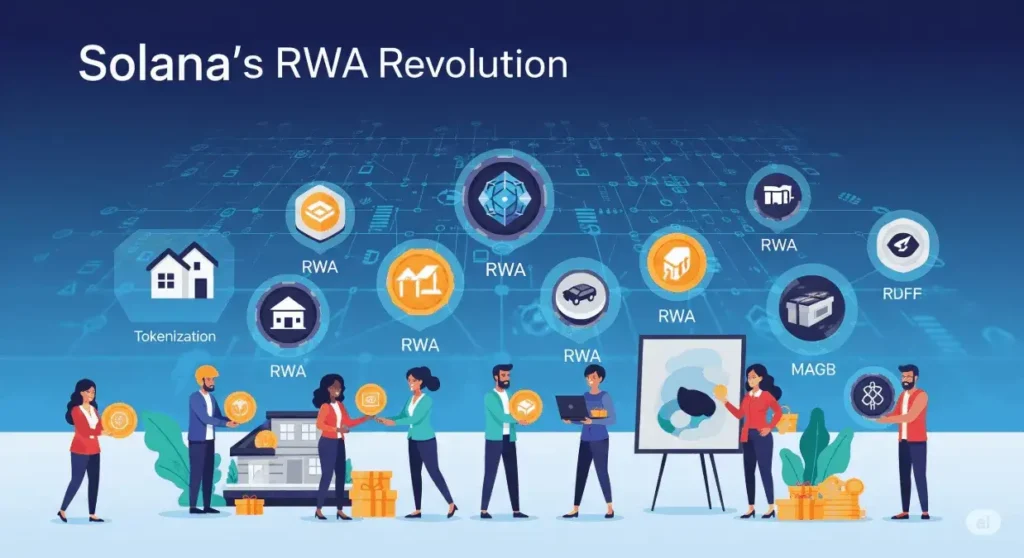
In the dynamic world of blockchain, Solana is carving out a significant new frontier: the tokenization of real-world assets (RWAs). Once predominantly known for its prowess in decentralized finance (DeFi) and non-fungible tokens (NFTs), the Solana network has rapidly evolved into a robust platform for integrating a diverse array of tangible and intangible assets onto the blockchain. This strategic shift is fundamentally rewriting how global capital operates, offering unprecedented efficiency, transparency, and accessibility.
The push into real-world assets represents a pivotal moment for Solana and the broader blockchain industry. It signifies a maturation beyond purely native digital assets, embracing the vast potential of bringing traditional financial instruments and physical goods into the decentralized realm. With over $418 million in RWAs already recorded on-chain – a remarkable 140% increase in 2025 alone – Solana is unequivocally demonstrating its capacity to meet stringent institutional demands while simultaneously lowering the barriers to entry for retail participants. This dual appeal is critical, fostering an inclusive ecosystem where both large-scale capital and individual investors can thrive. The network’s inherent advantages, such as its high throughput, low transaction costs, and rapid finality, make it an ideal candidate for handling the complex and high-volume transactions associated with tokenized assets.
Tokenized Treasuries: The Backbone of On-Chain Yield
At the vanguard of Solana’s real-world assets revolution is Ondo Finance, a trailblazer in bringing yield-bearing traditional financial products onto the blockchain. Their flagship offering, USDY, stands as the largest single RWA on Solana, boasting an impressive $175 million in value. USDY functions as a yield-bearing stablecoin, meticulously backed by U.S. Treasuries and secure bank deposits. This innovative structure provides a stable, interest-generating asset that can seamlessly traverse various blockchains thanks to its integration with LayerZero, a leading interoperability protocol. The ability to move freely across different ecosystems enhances liquidity and expands the reach of these tokenized instruments.
Close on the heels of USDY is OUSG, another significant offering from Ondo Finance. OUSG is designed to mirror the performance of BlackRock’s BUIDL fund, specifically targeting accredited investors. The emergence of products like USDY and OUSG underscores a crucial trend: U.S. Treasuries are rapidly becoming the foundational element for tokenized yield within the blockchain space. This integration offers investors a familiar and trusted asset class, but with the added benefits of blockchain technology, including 24/7 trading, fractional ownership, and enhanced programmability. By providing secure, yield-generating stablecoins and funds backed by high-quality assets, Ondo Finance is bridging the gap between traditional finance and decentralized finance, making institutional-grade products accessible in a new format.
Expanding Access Through Tokenized Stocks
The tokenization wave is not confined to government bonds; equities are increasingly joining the mix, opening up new avenues for global investors. In a significant development in late June, Backed, in collaboration with Kraken, launched xStocks on Solana. This initiative has opened the floodgates for tokenized shares and exchange-traded funds (ETFs) such as SPYx (representing SPDR S&P 500 ETF Trust) and TSLAx (representing Tesla, Inc. stock). These tokenized instruments are now accessible to tens of thousands of wallets worldwide, democratizing access to some of the world’s most prominent public companies.
The innovation doesn’t stop there. Superstate’s “Opening Bell” is on the horizon, promising to allow SEC-registered firms to list equities directly on-chain, streamlining the process and potentially reducing intermediaries. Furthermore, Ondo’s “Global Markets” initiative aims to bring real shares to non-U.S. investors through a compliant brokerage model, further breaking down geographical and regulatory barriers that have historically limited access to U.S. markets for international investors. These advancements are profound, offering a solution for individuals and entities who have traditionally faced significant hurdles in accessing U.S. equity markets through conventional brokers. Tokenized stocks promise greater liquidity, lower entry barriers, and the ability to trade outside of traditional market hours, leveraging the always-on nature of blockchain.
Private Credit and Alternative Funds Gaining Traction
Beyond publicly traded assets, Solana’s ecosystem for private credit and alternative funds is experiencing substantial growth. Projects like Maple Finance’s syrupUSDC and Apollo’s ACRED fund are at the forefront of this expansion. SyrupUSDC, for instance, has already surpassed a $60 million market capitalization by ingeniously transforming institutional credit into a stablecoin format. This innovative approach allows institutional credit to circulate freely and be utilized within the broader DeFi ecosystem, enhancing liquidity and enabling new use cases for previously illiquid assets.
Meanwhile, Apollo’s ACRED fund is revolutionizing corporate loans by converting them into DeFi collateral. This enables borrowers to access capital more efficiently and lenders to participate in a new class of secure, yield-generating opportunities. The tokenization of private credit brings much-needed transparency, fractionalization, and liquidity to a traditionally opaque and illiquid market. By converting these assets into on-chain tokens, platforms can facilitate easier transfer, better price discovery, and broader participation, ultimately creating a more robust and accessible private debt market.
Tokenized Real Estate and Unique Physical Goods
The scope of real-world assets on Solana extends even further, encompassing the vast and diverse sector of real estate. Platforms such as Parcl, Homebase, and MetaWealth are leading the charge, offering fractionalized access to both residential and commercial properties. This groundbreaking development democratizes real estate investment, allowing individuals to own a portion of a property without the immense capital outlay traditionally required. By breaking down properties into smaller, tradable tokens, these platforms broaden exposure to real estate far beyond local geographical borders, making global property investment more accessible than ever before. This also addresses issues of illiquidity in traditional real estate, providing investors with more agile exit strategies.
Even more exotic physical goods are finding a home on Solana’s blockchain. Startups like BAXUS are tokenizing fine spirits, allowing collectors and investors to own fractional shares of rare wines and whiskies. AgriDex is doing the same for agricultural commodities, bringing transparency and efficiency to supply chains and trading of goods like grain or livestock. Trading cards, art, and other collectibles are also being tokenized, enabling fractional ownership and transparent provenance. This diverse range of tokenized physical goods underscores Solana’s versatility and its potential to revolutionize ownership, trading, and investment across nearly every asset class. The inherent transparency of blockchain allows for immutable records of ownership and transactions, reducing fraud and increasing trust in these markets.
The Institutional Onslaught and Solana’s Future
The stage is set for an even greater influx of institutional capital into Solana’s RWA ecosystem. A significant indicator of this impending shift is R3’s announced plan to migrate over $10 billion in tokenized assets from its permissioned Corda network to Solana. This monumental move by a major enterprise blockchain consortium highlights the growing confidence in Solana’s infrastructure and its ability to handle large-scale, enterprise-grade transactions. R3’s decision validates Solana’s suitability for institutional adoption and its robust, secure, and scalable architecture.
Stay informed, read the latest crypto news in real time!
Solana’s rapid settlement times, remarkably low transaction fees, and adherence to composable standards are the bedrock of its appeal for real-world assets. These technical advantages enable efficient and cost-effective on-chain operations, making it an attractive destination for financial institutions seeking to leverage blockchain technology without incurring prohibitive costs or latency. The composability of its ecosystem allows developers to build complex financial applications by combining various tokenized assets and DeFi protocols, fostering innovation and creating new market opportunities. The real-world assets boom on Solana is not merely about digitizing traditional finance; it is about making traditional finance borderless, programmable, and accessible around the clock, ushering in a new era of global capital flow.

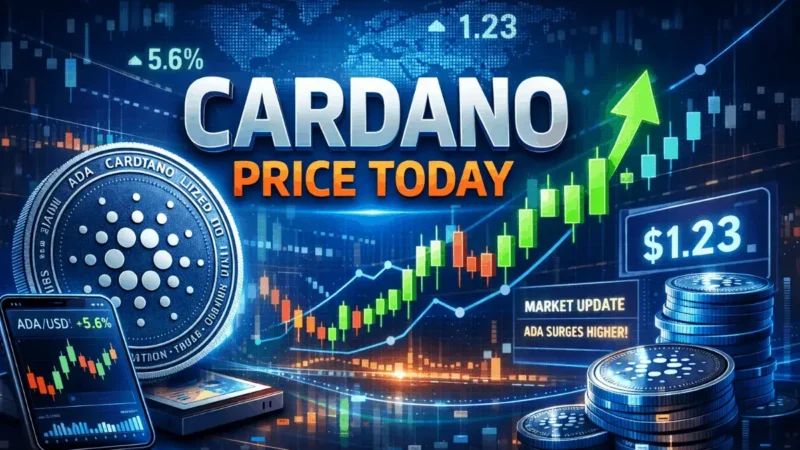
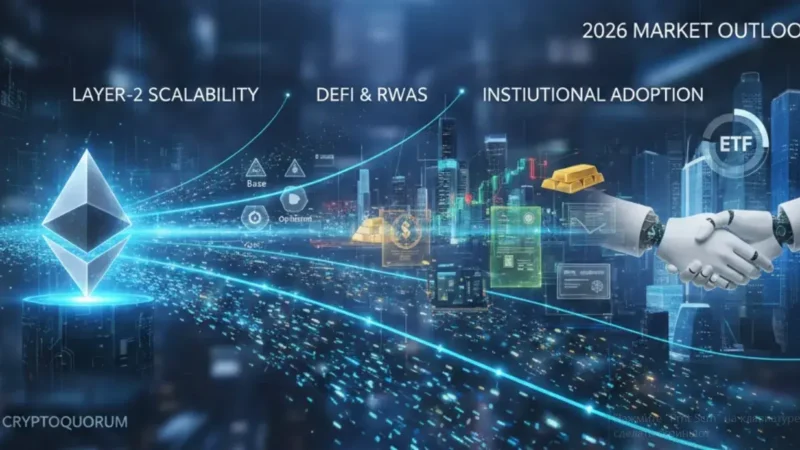
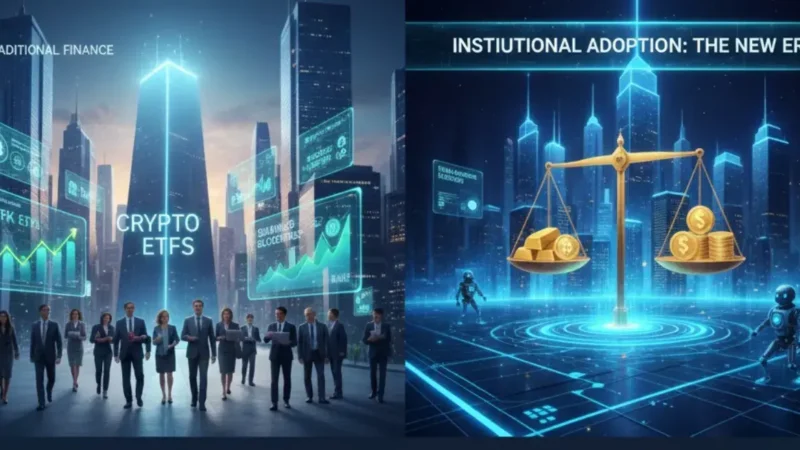
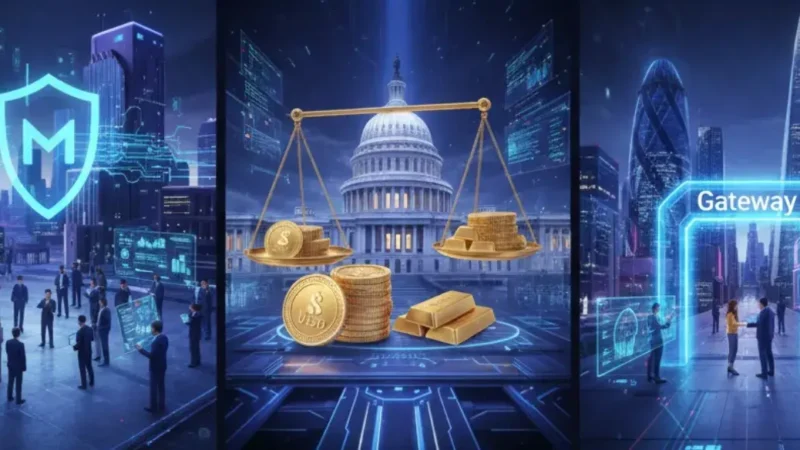
3 thoughts on “The Solana Frontier: Reshaping Global Capital with Real-World Assets”